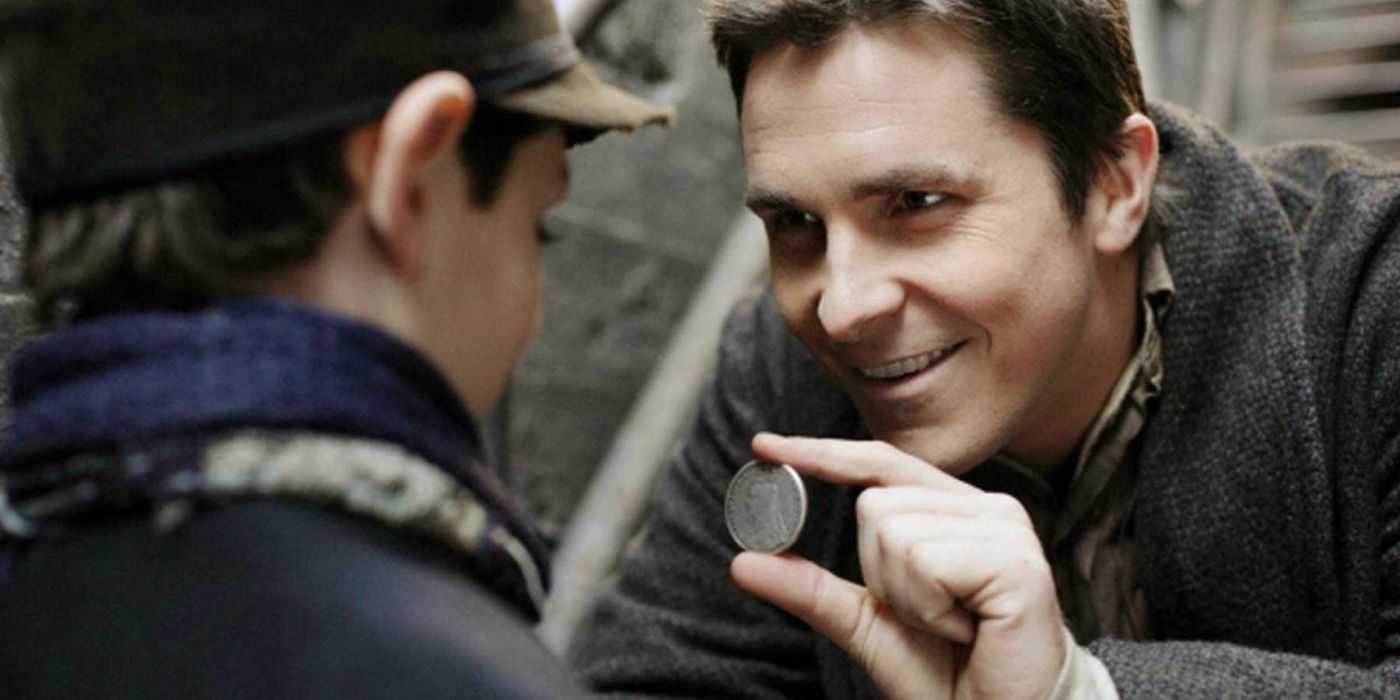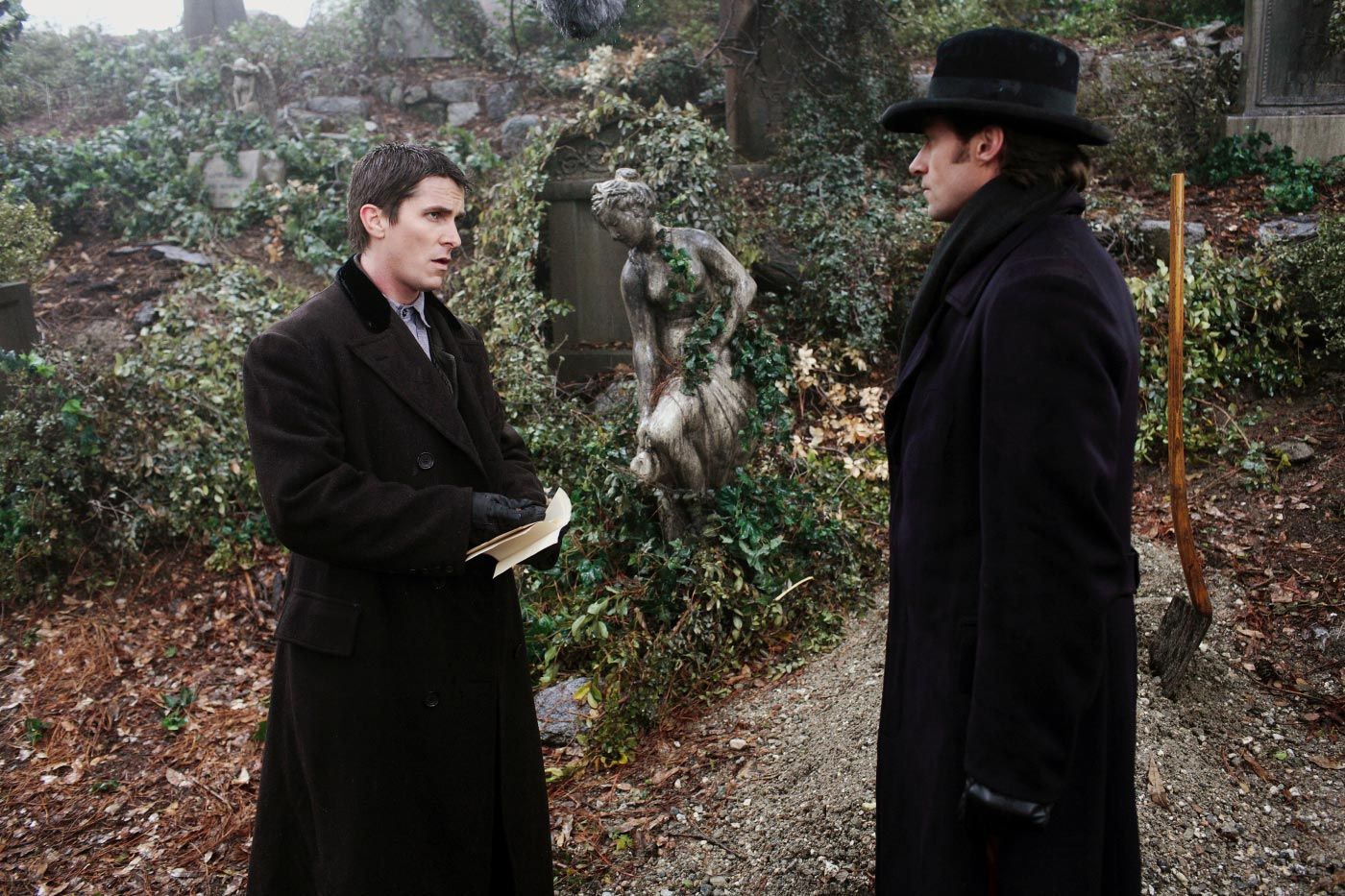Christopher Nolan’s 2006 film The Prestige is obsessed with the cost of deception. Its two protagonists—rival magicians Albert Borden (Christian Bale) and Robert Angier (Hugh Jackman)—commit to deceiving audiences, but in the end, their deceptions reach far beyond the stage. In their final confrontation, Albert shoots Robert for framing Albert’s twin brother for Robert’s murder. Robert has faked his own death through a new technology he purchased from Nikola Tesla (David Bowie). The technology creates a clone, but as part of his act, Robert never knows which Angier will get to perform The Prestige (the culmination of a magic trick) and which one gets to drown in a tank under the stage.
Albert has a secret of his own. His ingenieur, Mr. Fallon, was his twin brother. Rather than one brother committing to one personality, they each lived half a life. Sometimes one brother would be Borden and the other would be Fallon, and then other times they’d switch. It’s how they were able to perform The Transported Man, but the cost of such a trick was living half a life, and even that half a life could be easily destroyed like his wife Sarah (Rebecca Hall) feeling like Albert was cheating on her when really one Albert loved her and the other loved his assistant Olivia (Scarlett Johansson).
The key difference between the two men is that Borden has made peace with the sacrifice his deception requires. It cost him everything: two fingers, his wife, and his brother, but that’s what his art demanded. Angier thinks he’s sacrificed, but he doesn’t understand the nature of his deception. It isn’t until the film’s final scene where Cutter (Michael Caine) reveals that drowning isn’t like “going home.” That was a comforting lie for Angier over the death of his wife (Piper Perabo). Cutter tells Angier that drowning is actually “agony”, which is kind of a big deal since Angier is drowning his clone every night and each tank has a drowned clone in it.
These lies run to the heart of Christopher Nolan’s recurring themes—the lies we tell ourselves in order to live and if we can draw a line before the lie overtakes us. Sometimes the lie wins like in Following, Memento, or in the case of Angier in The Prestige. But if you can be truthful with the nature of your deception, then you can find a way to come home like Borden to his daughter or Cobb to his children in Inception. It’s a fine line, and The Prestige constantly examines the addictive nature of lies in service of artifice, but for two men who are so similar, understanding the lie and living with it rather than piling on another pleasant deception, is the key.
For an explainer on the ending of Inception, click here.


